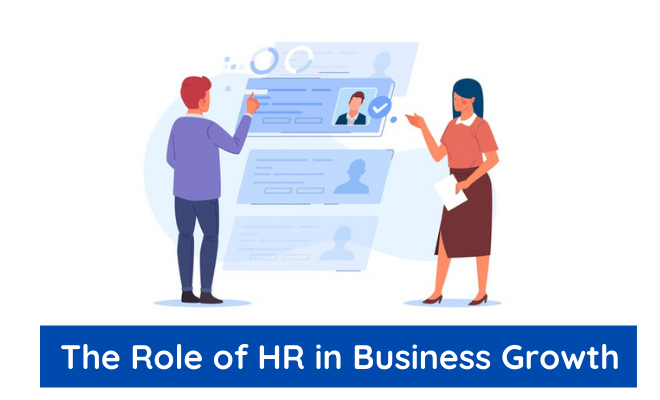The Role of HR in Business Growth

Recently I spoke at a meeting for HR professionals on the topic “HR in business growth and leadership”. What role and responsibility does the HR professional have in the field of leadership? And what is the role of HR in business growth?
Table of Content
From start-up to growth
In the start-up phase of a company, the entrepreneur does a lot himself, including the HR tasks: recruitment, hiring, employment contracts, development. But if the company continues to grow and scale further, this has several consequences. What worked before now works less or no longer. After all, 25 employees are managed in a different way than 7 employees. Where, for example, several employees fulfilled multiple roles, there is now a need for a clearer division of roles and tasks. And clarity in, among other things, remuneration, performance criteria, etc. I often see that the self-evident is no longer self-evident, more needs to be communicated and recorded. The first discussions about pay differentials arise in the workplace. Will you continue to do all the HR tasks as an entrepreneur?
Delegation of HR tasks
It is time to delegate several HR tasks to an HR specialist. Whether this applies from 25 employees or 50 employees, strongly depends on the type of company and the extent to which basic processes have already been systematized. It is also good to consider whether an external HR advisor will be used in the first instance or whether someone will be hired. The advantage of an external HR advisor in the first growth phase is that the foundation can be laid for further growth. As I often call it, the ‘basic hygiene’ must be in order in the first place. A solid foundation is a basis for further growth. And with further growth, there is often a need for a different type of HR support.
Types of HR support
In the maze of HR roles, Ulrich’s HR model can provide a nice grip. Dave Ulrich is an American professor and distinguishes four roles for HR in his standard work Human Resource Champions.
His vision brings some clarity to the many HR variations and the associated job terms. Dave Ulrich is therefore mainly concerned with determining the most important mix of roles. It answers what the organization wants. And on what can be linked to what the HR specialist offers. That is why he summarizes the contribution of HR in four parts: implementation of strategy, capacity for change, performance and involvement of employees, and administrative efficiency. These contributions can be classified along two axes: strategic-operational and process-oriented-people-oriented. This creates four result areas for the HR professional and four core roles. The roles of ‘HR strategist and HR business partner’ outlined by Uhlrich have become the ideal image for many colleagues that they like to mirror themselves.
The four roles are:
- The strategic partner (strategic business partner). Ensures successful execution of business strategy. As a strategic partner of management, translates the business goals into concrete HR strategy and priorities for HR.
- The modifier (change agent). He is the change manager, the process advisor within the organization. And is concerned with matters such as competence management and learning capacity of an organization.
- The administrative expert. He is responsible for smoothly running administrative processes. And ensures that the (personnel information) systems contain adequate or relevant information. In short, the administrative expert is the management specialist and primarily provides HR with good infrastructure (the process in order).
- The employee champion. This manager is more people and employee-oriented. This concerns, among other things, good onboarding processes, the creation of an unambiguous assessment and functioning system, et cetera.
The role of HR in business growth
The role of HR naturally strongly depends on what is needed and what is already secured in the HR field.
First of all, it is important to have the house in order’ in terms of HR.
This includes:
- streamlining employment conditions
- absenteeism procedures
- personnel administration
- performance and assessment system.
It is also important to investigate what can be automated.
A good HR advisor will quickly be able to investigate and advise what is needed.
And as the organization continues to grow, the role of the HR advisor or HR manager will also change. There is a greater need for an “HR in business growth business partner”, the strategic partner. For the HR manager in this role, it is a precondition that the administrative workload is reduced.
Selection of the ideal HR in business growth manager
When the time comes, what are the optimal qualities of an HR Business Partner or HR manager? And what should the management, the CEO, pay attention to? The HR manager or HR business partner:
- Must speak the language of the management. This means that HR in business growth and management have a shared vision of the future. And that means that there must be mutual trust.
- Knows the organization and the specific culture.
- Is communicative and persuasive.
- Is a strategic discussion partner and knows how to challenge the management at set times with his / her own vision of the organization.
- Has good professional knowledge and has gained similar experience.









